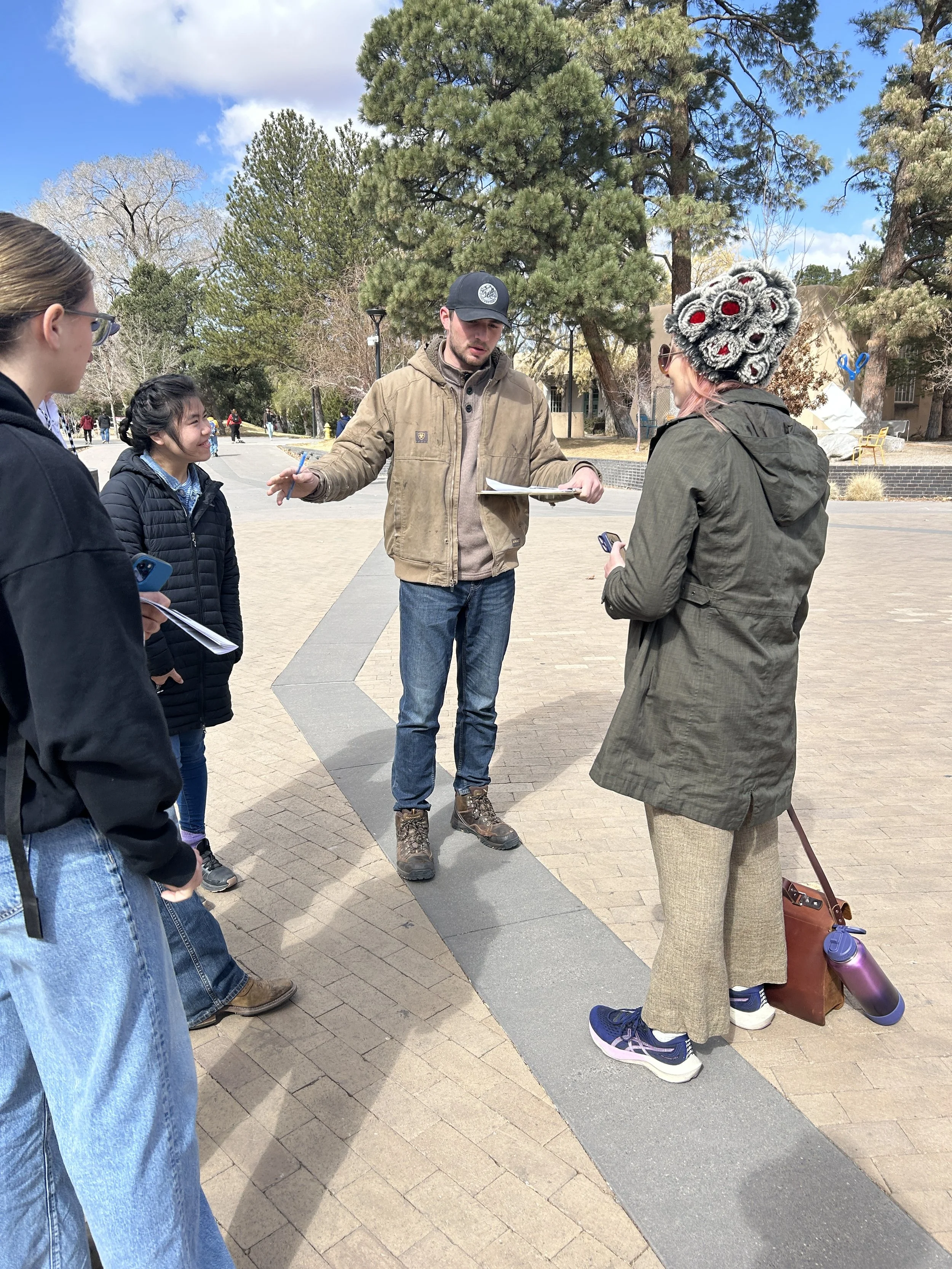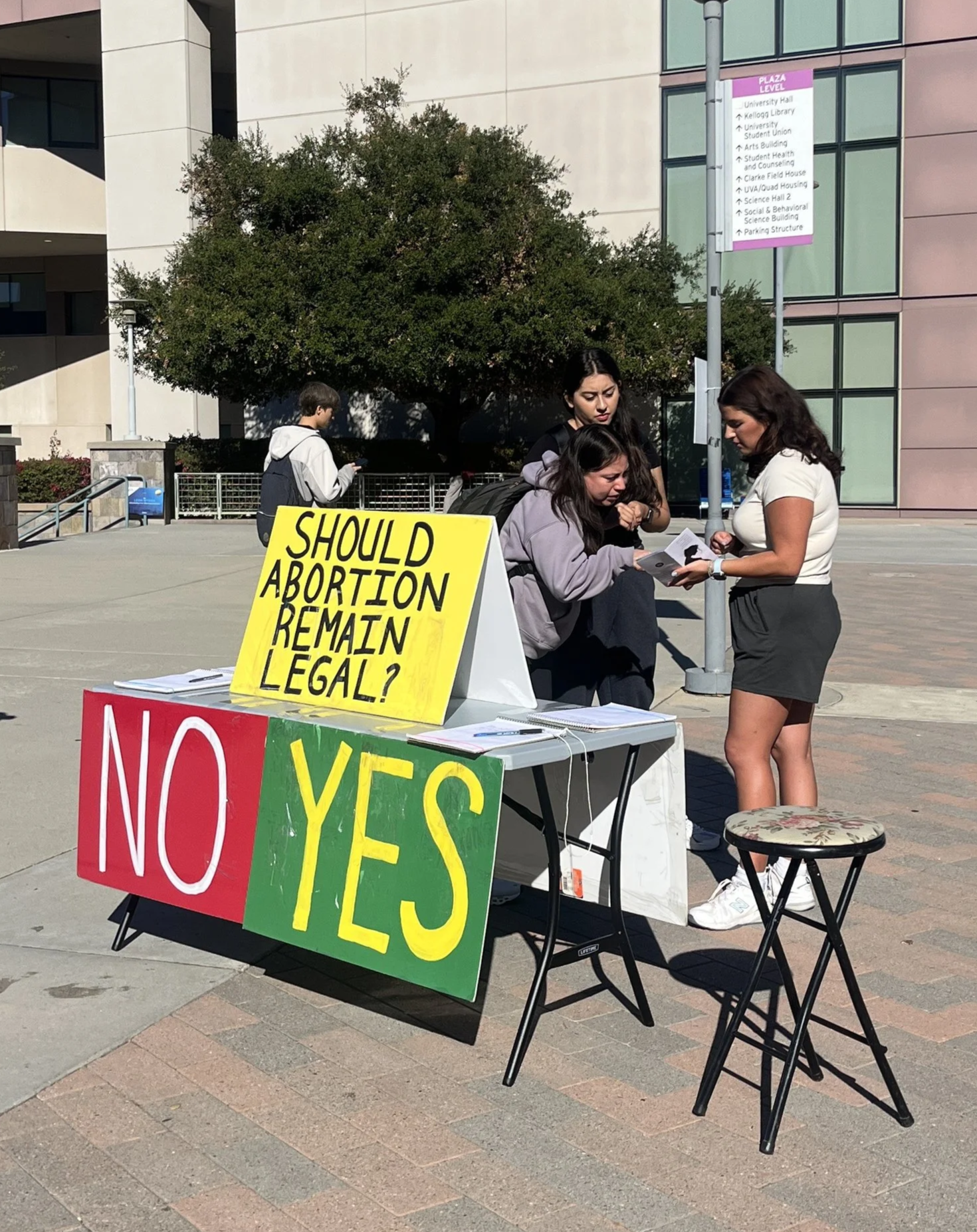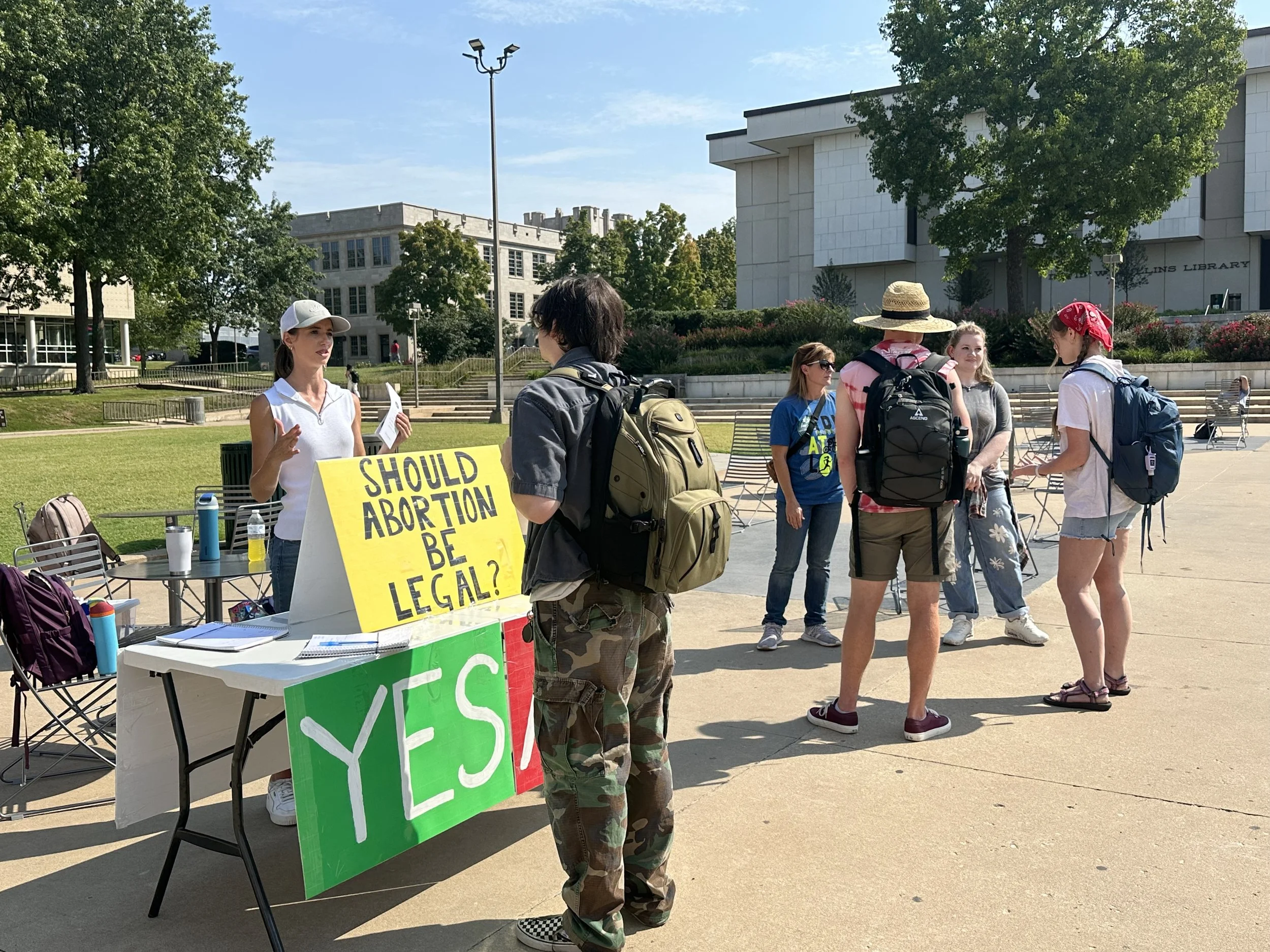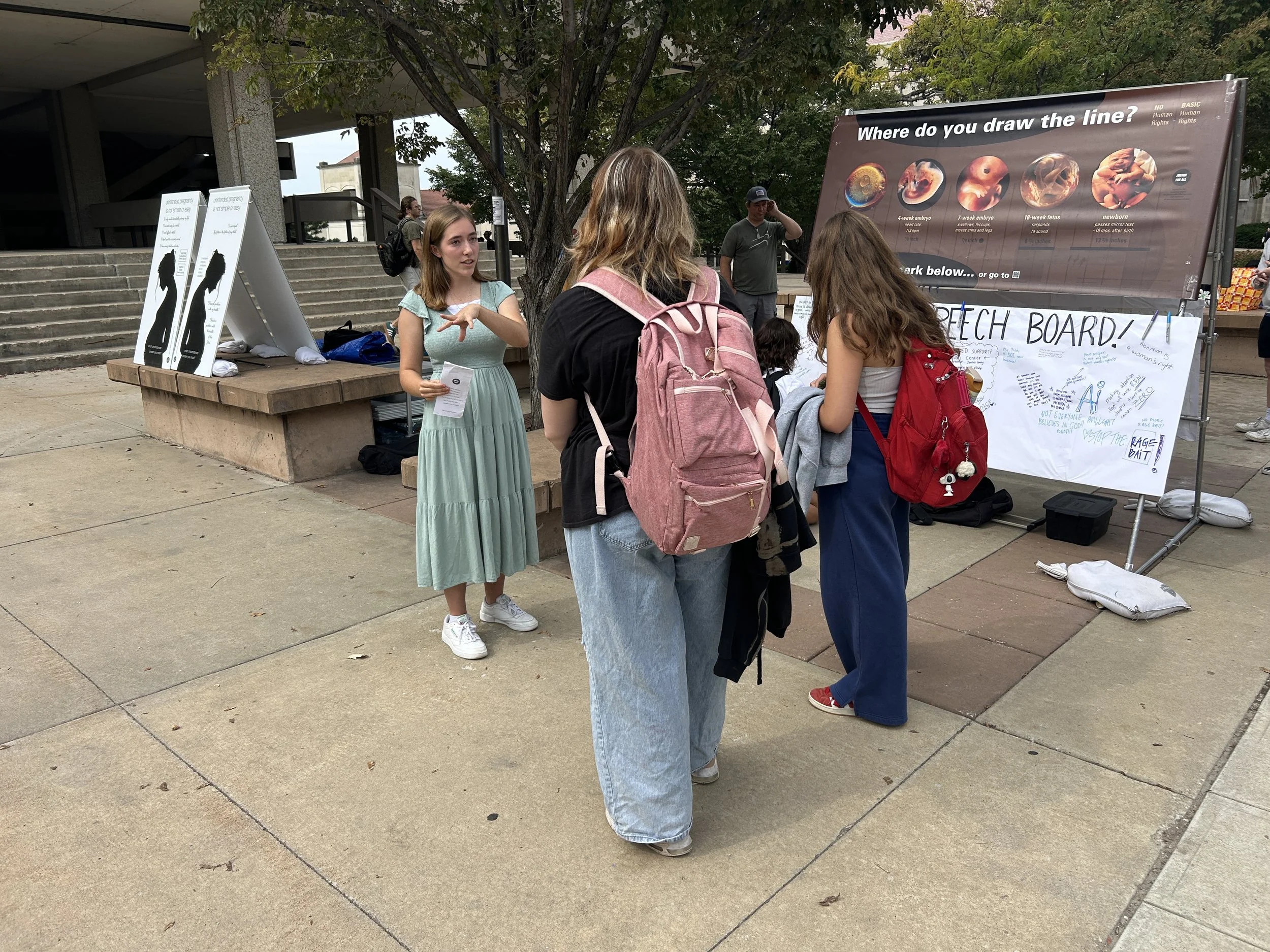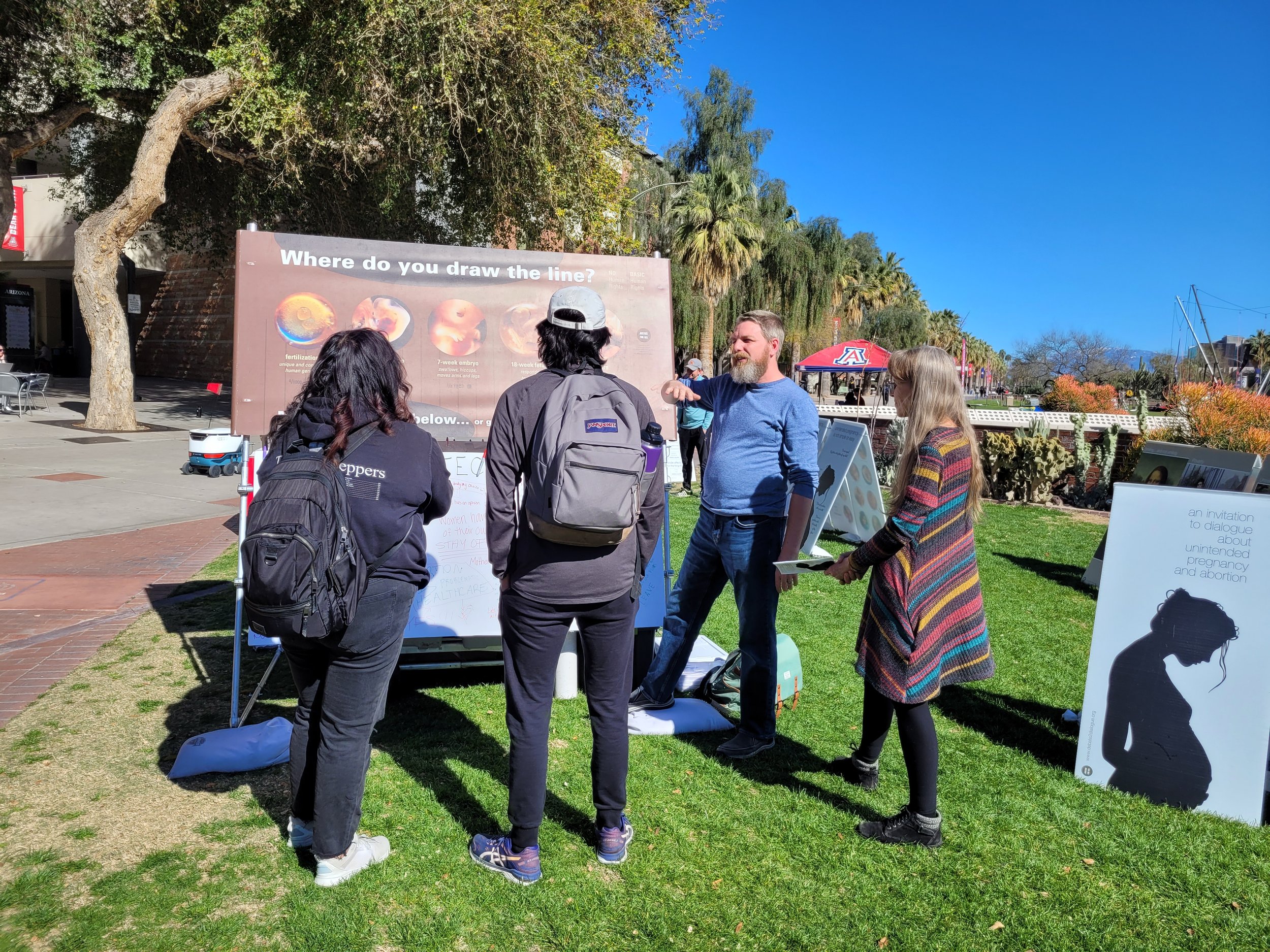Outreach at Adams State University in Colorado, April 2024
When our team went to Adams State University last spring, we had the opportunity to partner with two amazing local Christian ministries on campus. On the second day of outreach, Kalen, one of the ministry leaders, and I had a providential interaction with a student. “Thomas” was walking by our exhibit, and this is how our conversation went.
Andrea: Hi, do you have time to share your thoughts on the issue of abortion?
Thomas: Yeah, I am not completely sure what my thoughts are on this issue.
Andrea: That is totally fine. Do you think abortion should be legal for all nine months of pregnancy or just for a certain period of time?
Thomas: I am not sure.
Kalen showed him images of the unborn at different developmental stages (shown right).
Thomas: Okay, I would say abortion should be legal somewhere until four to twelve weeks of pregnancy.
Andrea: Do you think abortion should be legal for all circumstances or just certain circumstances?
Thomas: I think abortion should be legal for circumstances like rape. I have a friend who was raped, got pregnant, and had an abortion. My sister was raped as well.
Andrea: That is awful. I am so sorry. That must have been so difficult on your friend and sister.
After spending time acknowledging how terrible rape is, I paused for a second. I was trying to decide where to take the conversation next.
Kalen opened the brochure again to the images of the unborn at different stages of development.
Kalen: Did you say you think abortion should be legal until this time frame (pointing to about four to twelve weeks)?
Thomas: Yes.
Andrea: When do you think life begins scientifically speaking?
Thomas: I would say around four to twelve weeks.
Kalen and I were able to discuss the biology in depth and explain how we can determine that life starts at conception.
Kalen: If the unborn is growing, it must be alive. If it has human parents, it must be human. And living humans, or human beings like you and me, are valuable, aren’t they? *
Thomas: Yes, that makes sense.
With Thomas’s permission, Kalen showed him images of a first trimester abortion. I could tell that Thomas was greatly affected as he looked at the reality of abortion. Kalen did a beautiful job explaining how many women think abortion should be legal because they mistakenly believe it empowers them.
At one point Thomas said, “Thank you for having this conversation with me. This has really opened my eyes on this issue.”
Kalen took a minute to explain that he is with Christian Challenge, a Christian club on campus. This gave us an open door to ask Thomas about his spiritual background.
Thomas didn’t have much of a spiritual background, but Kalen had the opportunity to share the gospel in great detail with him. As the conversation progressed, it was incredible to watch him begin to realize his need for a Savior.
““I appreciate you having
this conversation with
me. No one has ever
talked to me about these
things before”
Before Thomas left, he said, “I appreciate you having this conversation with me. No one has ever talked to me about these things before.”
As I reflect on this conversation, it is a reminder that God is still at work. Exodus 4:12 says, “Now therefore, go, and I will be with your mouth and teach you what you shall say.” In interactions like the one I had with Thomas, it can be challenging to know how to steer the conversation. It’s comforting to rest in the fact that God calls us to be willing, obedient, and sensitive to the Holy Spirit’s leading. He does the rest.
Thank you so much for your prayers and support that make these conversations possible. Our team is gearingup for another semester of engaging students on universities and training pro-life advocates to engage others onthe issue of abortion. I would appreciate your continued prayers.
* Kalen used the Ten Second pro-life apologist developed by Steve Wagner.

